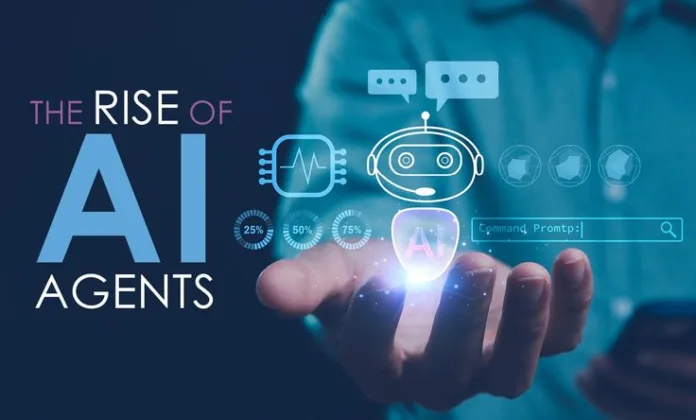
The world of artificial intelligence is undergoing a significant transformation. One of the most exciting developments in this space is the rise of AI agents—autonomous systems that can perceive, reason, and act independently to achieve specific goals. From virtual assistants that manage our calendars to complex AI agents performing stock trading or customer service operations, these technologies are rapidly becoming integral to modern life.
In this article, we’ll explore what AI agents are, how they work, and how they’re shaping the future of technology and business.
What Are AI Agents?
AI agents are intelligent programs capable of perceiving their environment, processing data, making decisions, and performing actions without constant human intervention. Unlike traditional software, AI agents can learn from their interactions and adapt to new scenarios.
These systems combine machine learning, natural language processing, and autonomous decision-making to function independently across a wide range of tasks. Whether it’s answering questions in a chatbot, navigating traffic as part of a self-driving car, or running backend operations in finance, AI agents are designed to act like virtual employees.
Types of AI Agents
AI agents can be categorized based on complexity and function:
Reactive Agents: These operate based on current inputs without memory. They’re suitable for simple tasks like rule-based responses in chatbots.
Model-based Agents: These use internal models to predict future states and make more informed decisions.
Goal-based Agents: Designed to take actions that move them closer to defined objectives, such as reaching a destination or completing a user task.
Learning Agents: These continuously improve through experience, adjusting their behavior over time.
Real-World Applications of AI Agents
The adoption of autonomous AI systems is increasing rapidly across industries. Here are a few notable use cases:
1. Customer Support
AI agents, such as intelligent virtual assistants, are being deployed in customer service to handle inquiries 24/7. These systems can respond to common issues, escalate complex problems to human agents, and learn over time to offer better support.
2. Healthcare
Autonomous AI systems are used to analyze patient data, suggest diagnoses, and even assist in robotic surgeries. AI agents can monitor patient vitals and flag anomalies in real time.
3. Finance
From fraud detection to automated trading, AI agents are optimizing decision-making in the financial world. They analyze market trends, execute trades, and monitor portfolios far faster than humans.
4. Smart Homes
AI agents integrated into smart devices help automate lighting, heating, and security. They learn user preferences and optimize energy usage.
5. Logistics and Supply Chain
In warehouses and logistics, AI agents control autonomous vehicles, manage inventory, and improve delivery accuracy.
How AI Agents Work
AI agents rely on a cycle known as the Perceive-Reason-Act loop:
Perceive: Sensors or input data help the agent understand its environment.
Reason: Algorithms analyze the data and evaluate potential actions.
Act: The system takes action based on its analysis, and the cycle repeats.
Many modern AI agents also incorporate feedback loops, which allow them to learn from their performance and adapt accordingly. This continuous learning is what makes them so powerful.
Benefits of AI Agents
Efficiency: AI agents can perform tasks faster than humans and with fewer errors.
Scalability: One agent can handle thousands of interactions simultaneously.
Cost Reduction: Businesses save money on labor and operational inefficiencies.
Availability: These systems operate 24/7 without fatigue or breaks.
Challenges and Ethical Considerations
Despite their promise, AI agents come with certain challenges:
Bias in decision-making
Lack of transparency in reasoning (black-box AI)
Data privacy concerns
Dependence on data quality
As AI agents become more powerful, ethical frameworks must evolve to ensure responsible deployment.
The Future of AI Agents
The future of AI in automation lies in agents that can collaborate, negotiate, and operate in dynamic, real-world environments. We’re already witnessing the early stages of multi-agent systems, where groups of AI agents work together to complete complex tasks such as managing city traffic or orchestrating emergency response.
As technology matures, AI agents will play an even larger role in business, science, and everyday life. They will not only assist us but also augment our decision-making abilities, potentially changing how we work, learn, and interact with the world.
Conclusion
The rise of AI agents marks a pivotal shift in the evolution of artificial intelligence. These autonomous systems are already reshaping industries and will soon become embedded in every aspect of modern life. From intelligent virtual assistants to fully autonomous decision-makers, AI agents are no longer a futuristic concept—they are a present reality guiding us toward a more efficient, intelligent, and automated world.